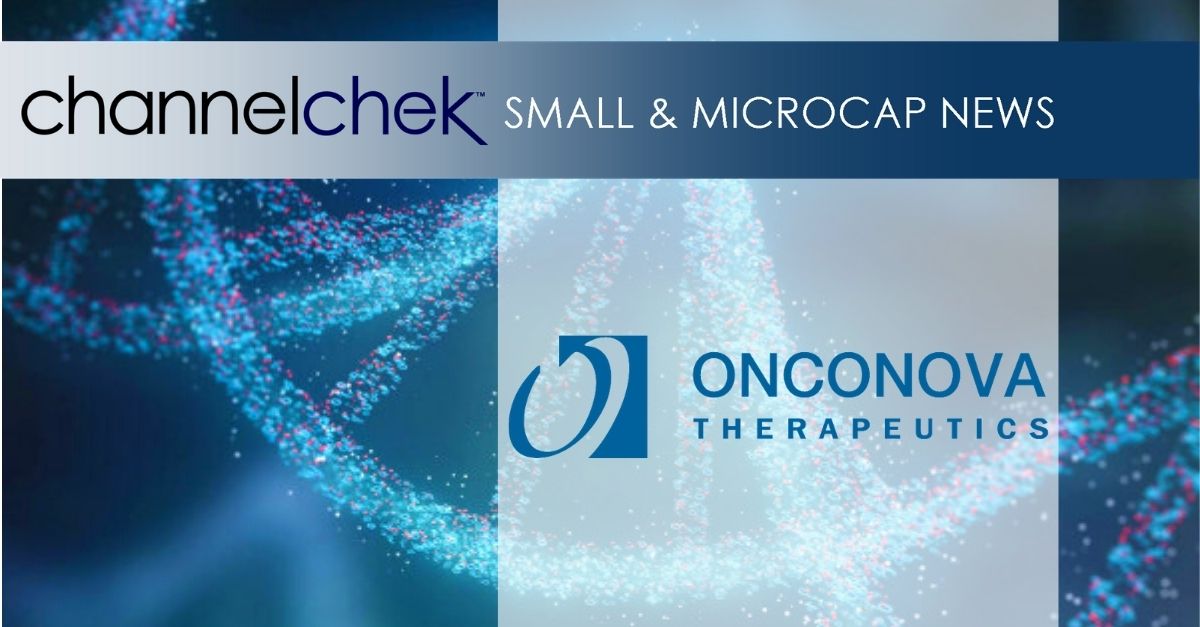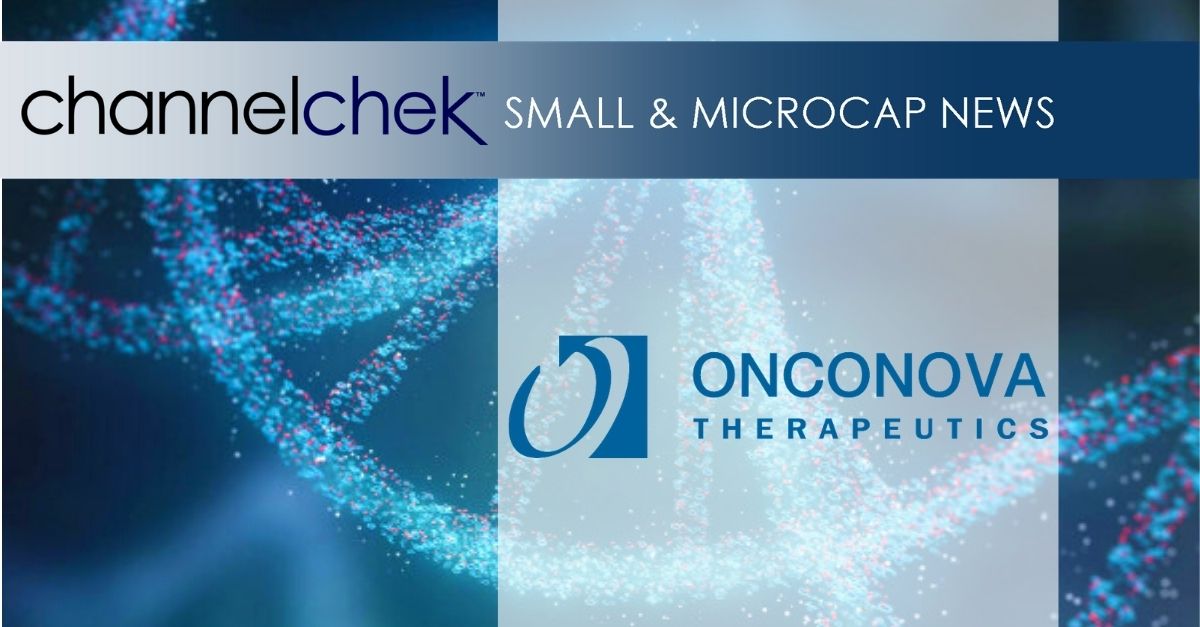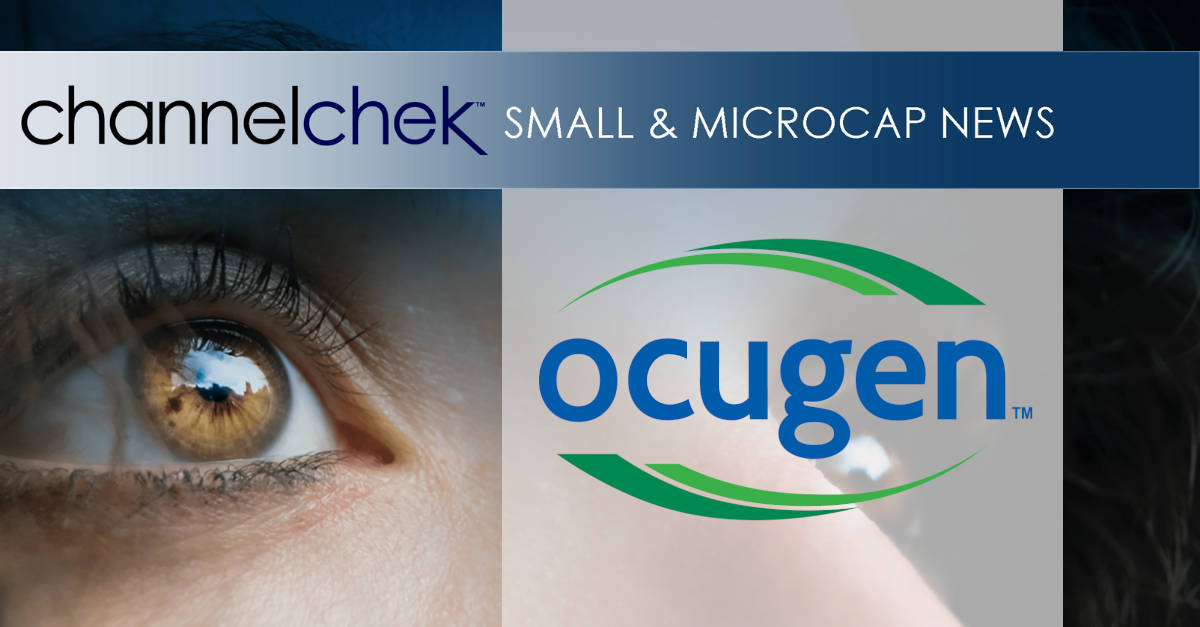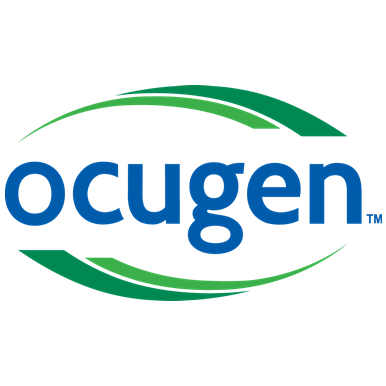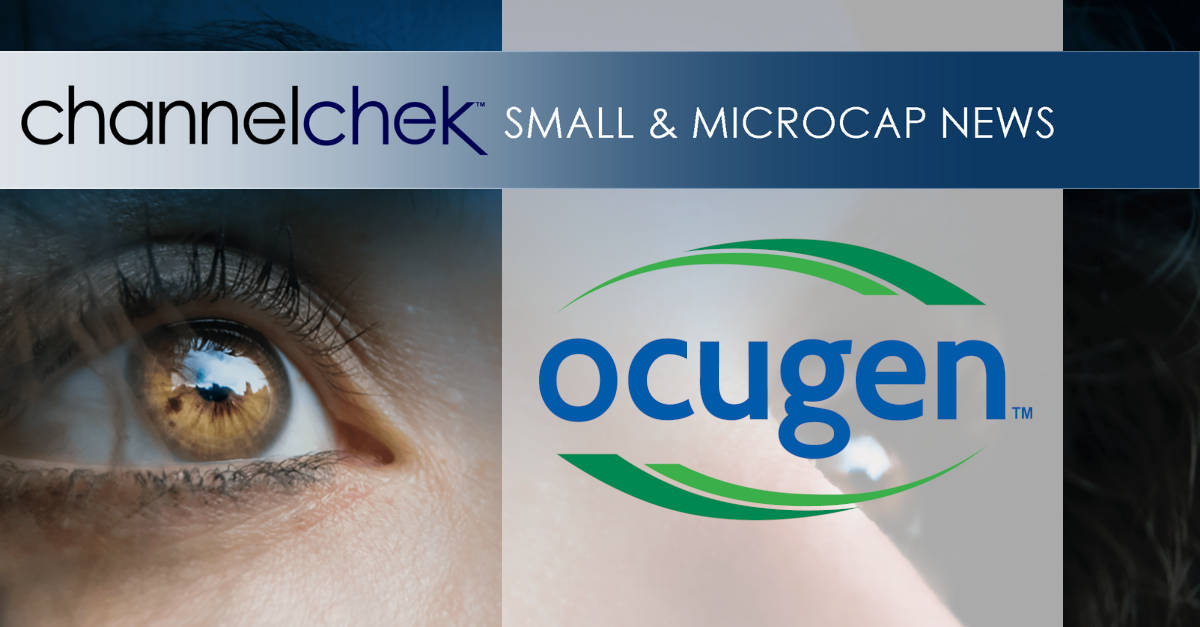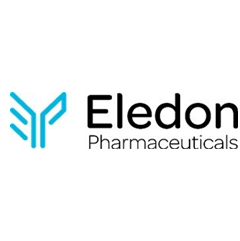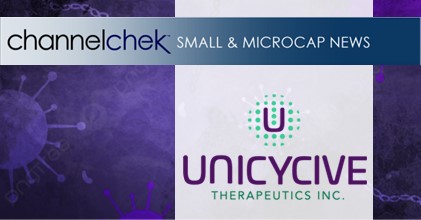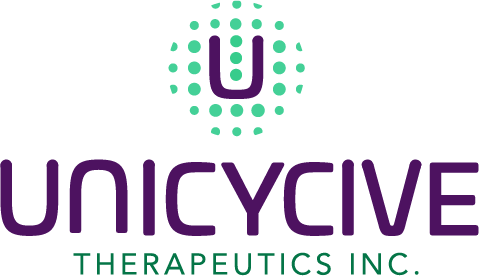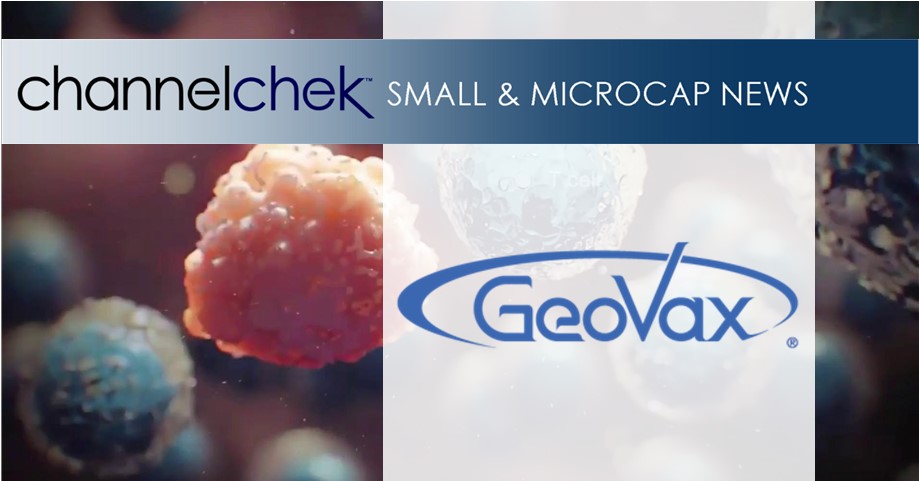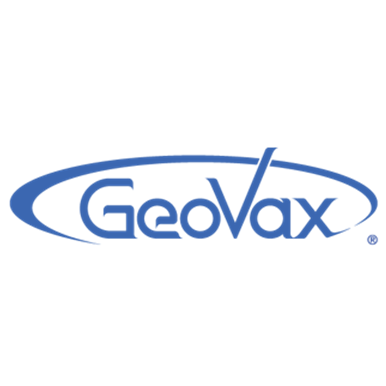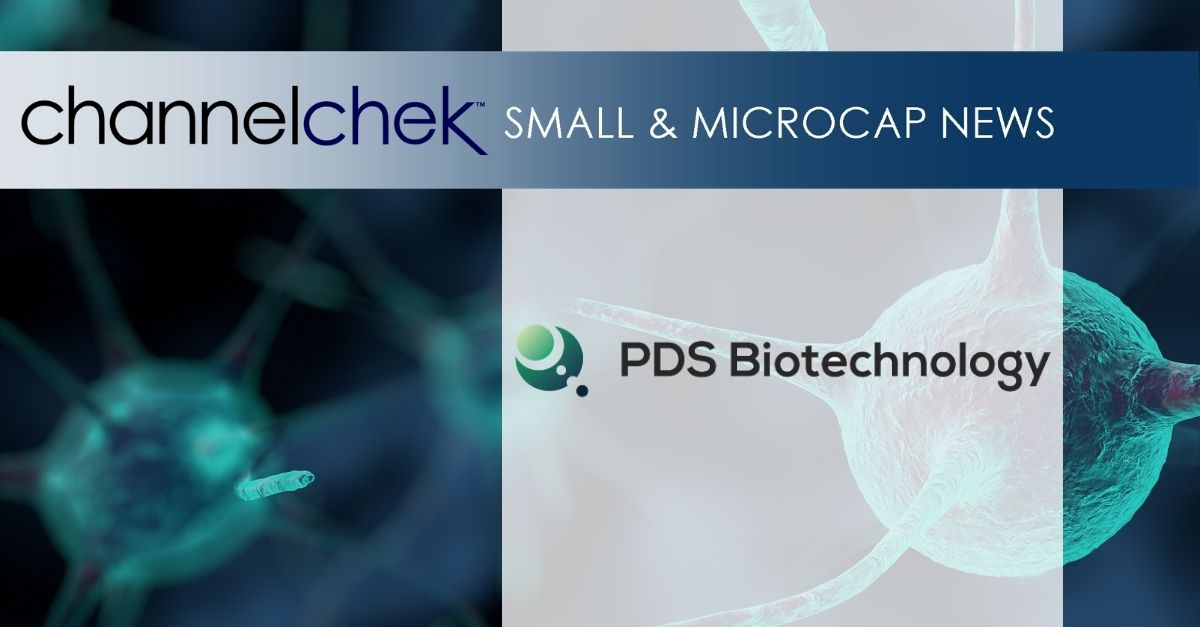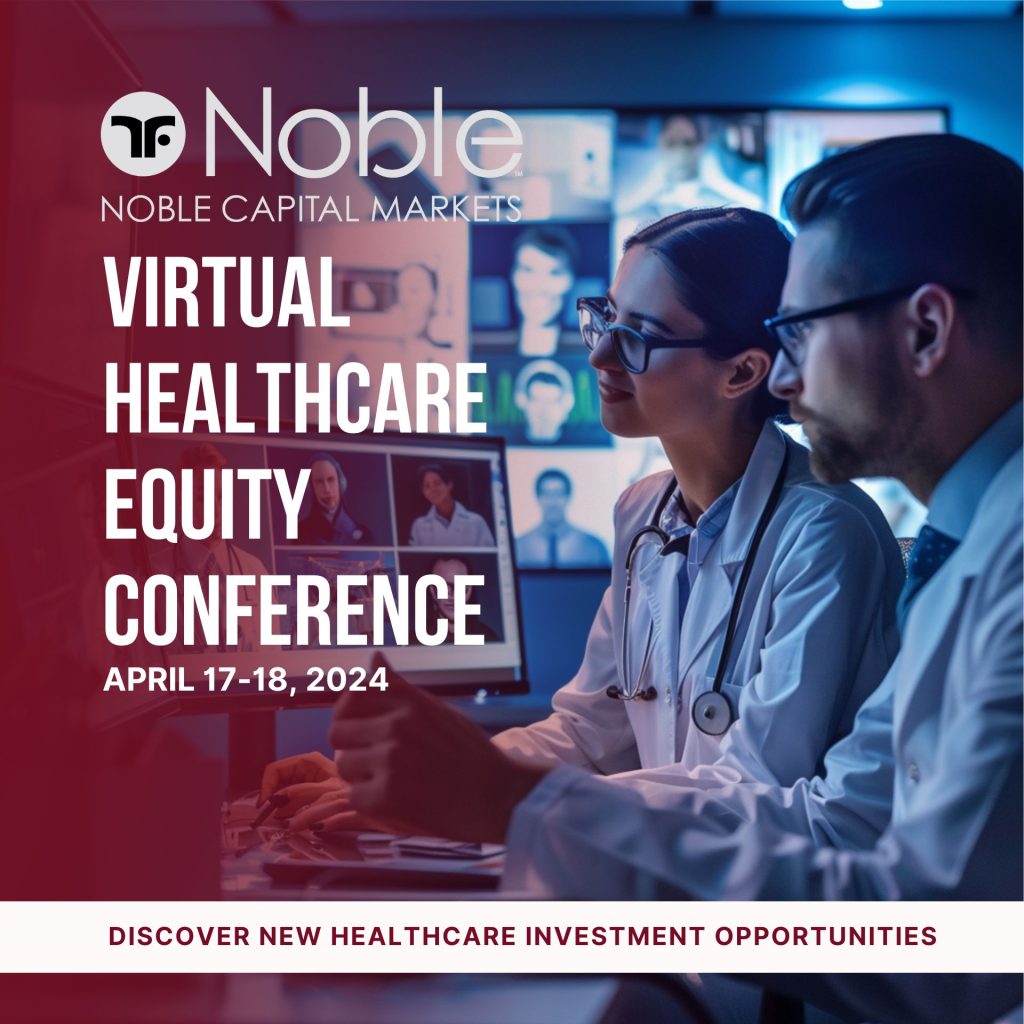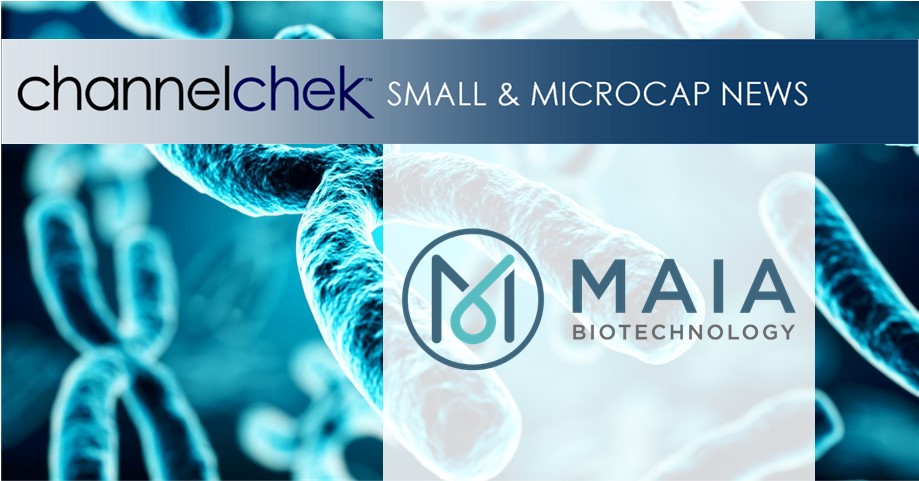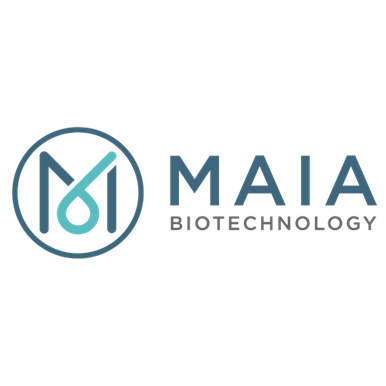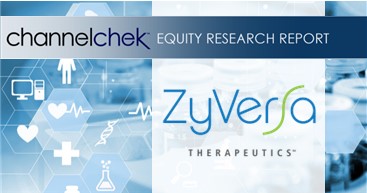Research News and Market Data on PDSB
Unique mechanism of action of the combination of PDS01ADC and Versamune® results in 3-year survival of 75% and 75% overall response rate in advanced head and neck cancer trial
As a result, Company to focus late-stage clinical strategy on triple combination of PDS01ADC, PDS0101 (Versamune® HPV) and KEYTRUDA® in advanced head and neck cancer
Strong safety profile of IL-12 fused antibody drug conjugate (PDS01ADC) demonstrated to date with data generated in >300 cancer patients; Versamune® HPV tested in >110 HNSCC patients
Successful recent meeting with FDA provided clear guidance on trial design and regulatory pathway for pivotal randomized trial of triple combination in recurrent metastatic HPV-positive HNSCC
Company to host conference call and webcast today at 8:00 AM ET
PRINCETON, N.J., March 27, 2024 (GLOBE NEWSWIRE) — PDS Biotechnology Corporation (Nasdaq: PDSB) (PDS Biotech or the Company), a late-stage immunotherapy company focused on transforming how the immune system targets and kills cancers and the development of infectious disease vaccines, today announced an update to its clinical development strategy and reported its financial results for the year ended December 31, 2023.
“We have obtained compelling data from several Phase 2 trials in the fourth quarter of 2023, including long-term survival data from the National Cancer Institute (NCI)-led triple combination trial of PDS01ADC in combination with Versamune® HPV (PDS0101) and an investigational immune checkpoint inhibitor (ICI), as well as our VERSATILE-002 study,” said Frank Bedu-Addo, PhD, President and Chief Executive Officer of PDS Biotech. “We now have a better understanding of how our drug platform technology works in advanced cancer, and we have therefore made the strategic, data-driven decision to add our novel, investigational IL-12 fused antibody drug conjugate, PDS01ADC, to the promising combination of Versamune® HPV and KEYTRUDA® to advance the triple combination as our top clinical development priority.”
“By initially addressing the rapidly growing unmet medical need in recurrent metastatic HPV+ head and neck squamous cell cancer (HNSCC), we strongly believe this approach may rapidly establish our proprietary combination of PDS01ADC and Versamune® HPV as a transformative oncology treatment. The data suggest that the triple combination may result in a significant improvement in overall survival rates for patients who currently lack an effective treatment option. It may also significantly increase the rates of durable tumor shrinkage or overall responses,” said Dr. Bedu-Addo. “We are grateful to the patients and physicians who participated in the clinical trials which have helped inform our understanding of how the drug therapies may be used most effectively to safely address advanced cancer, and our decision to prioritize the triple combination.”
With the recent long-term survival Phase 2 data from the NCI-led triple combination trial, together with favorable safety and extended survival results seen in both ICI naïve and resistant patients in our VERSATILE-002 trial, PDS Biotech has decided to prioritize the triple combination in place of the VERSATILE-003 trial. This decision enables PDS Biotech to focus its resources on the drug regimen it believes has the highest potential to benefit patients with HNSCC and to drive shareholder value.
“We have had several discussions with key opinion leaders in HNSCC regarding the use of the triple combination in HNSCC. A clear unmet need is seen in HPV+ HNSCC with few agents being studied in this population due to the difficulty in treating advanced HNSCC,” said Kirk V. Shepard, M.D., Chief Medical Officer of PDS Biotech. “These discussions with expert HNSCC oncologists have guided our decision to prioritize the triple combination in our efforts to address the growing incidence of advanced HPV+ HNSCC.”
“Despite good outcomes in many patients with HPV-related HNSCC, approximately 20% of patients will develop recurrent, incurable disease, often in young individuals in the prime of their lives. HPV-related HNSCC that progresses after standard first-line chemotherapy is a devastating, hard-to-treat cancer with no HPV-related treatment currently approved. The NCI clinical trial data show significant promise in the use of PDS01ADC in combination with Versamune® HPV,” said Katharine A. Price, M.D., Associate Professor of Oncology, Head and Neck Disease Group, Mayo Clinic Comprehensive Cancer Center and Principal Investigator of PDS Biotech’s upcoming triple combination trial. “A controlled randomized clinical trial that builds upon the current data is warranted, and I am intrigued by the potential of this unique combination to treat HNSCC.”
Clinical Strategy Update
Triple Combination Clinical Trial (PDS01ADC, Versamune® HPV and KEYTRUDA®)
- Company in discussions with the U.S. Food and Drug Administration (FDA) on the design of potentially pivotal clinical trial to treat HPV+ HNSCC, with the trial expected to start in 2024.
- Previously announced data from Phase 2 NCI-led triple combination clinical trial for the treatment of recurrent/metastatic ICI naïve and ICI resistant HPV16-positive cancers including head and neck, anal, cervical, vaginal and vulvar cancers support rationale:
- ICI naïve group: 75% of patients remain alive at 36 months. The median overall survival (OS) was not reached. Published results show a 36-month survival rate of approximately 20% with ICIs. An overall response rate (ORR) of 75% and complete response of 38% were seen in patients treated with the triple combination. Published ORR of <40% seen with immunotherapeutic agents.
- ICI resistant group: 12-month OS rate of 72%, and 63% ORR in patients with optimal dose of PDS01ADC. Median OS approximately 20 months; published 12-month OS rate in HPV-positive ICI-resistant cancer is ~30%; published median OS in HPV-positive ICI-resistant cancer is 3.4 months.
- Responses were seen in all HPV-positive tumor types.
Leadership Appointments
- In January 2024, announced the appointment of Dr. Shepard as Chief Medical Officer.
- In November 2023, announced the appointment of Lars Boesgaard as Chief Financial Officer.
Full Year 2023 Financial Results
Net loss for the year ended December 31, 2023, was approximately $42.9 million, or $1.39 per basic and diluted share, compared to a net loss of $40.9 million, or $1.43 per basic share and diluted share, for the year ended December 31, 2022. The higher net loss was primarily the result of increased operating loss and increased net interest expense.
Research and development expenses for the year ended December 31, 2023, decreased to $27.8 million, compared to $29.4 million for the year ended December 31, 2022. The decrease of $1.7 million was primarily attributable to the $10 million purchase of the rights to PDS01ADC in 2022, partially offset by an increase in clinical costs of $6.1 million and an increase in personnel costs of $2.1 million.
General and administrative expenses for the year ended December 31, 2023, increased to $15.3 million compared to $12.2 million for the year ended December 31, 2022. The $3.1 million increase was primarily attributable to an increase in personnel costs of $1.5 million and an increase in professional fees of $1.6 million.
Total operating expenses for the year ended December 31, 2023, were $43.0 million, an increase of approximately 3.3% compared to $41.7 million total operating expenses for the year ended December 31, 2022.
Net interest expense increased to $1.3 million for the year ended December 31, 2023, compared to $0.4 million for the year ended December 31, 2022. The change was due to higher interest expense related to the Company’s notes payable, partially offset by higher interest income on bank deposits.
During the fourth quarter of 2023, the Company raised approximately $10.5 million in net proceeds from its “at-the-market” sales agreement.
The Company’s cash balance as of December 31, 2023, was $56.6 million.
Conference Call and Webcast
The conference call is scheduled to begin at 8:00 AM ET today, March 27, 2024. Participants should dial 877-704-4453 (United States) or 201-389-0920 (International) and reference conference ID 13745320. To access the webcast, please use the following link. The event will be archived on the Investor Relations section of PDS Biotech’s website for six months.
About PDS Biotechnology
PDS Biotechnology is a late-stage immunotherapy company focused on transforming how the immune system targets and kills cancers and the development of infectious disease vaccines. The Company plans to initiate a pivotal clinical trial in 2024 to advance its lead program in advanced head and neck squamous cell cancers (HNSCC). PDS Biotech’s lead program is a proprietary dual-acting combination of antibody drug conjugate (ADC) PDS01ADC and T-cell activator Versamune® HPV in regimen with a standard-of-care immune checkpoint inhibitor. Proof-of-concept long-term data have shown positive survival results and tumor shrinkage with this combination and indicate favorable tolerability.
With a novel investigational “inside-out” mechanism, the dual immunotherapy has shown compelling results with potential to successfully disrupt a tumor’s inside defenses, while also generating potent, targeted killer T-cells to attack the tumor from the outside. Robust data from more than 350 patients, as well as ongoing clinical trials across multiple tumor types and standard treatment regimens, have validated the platforms and point to potential broad utility.
Our Infectimune® based vaccines have demonstrated the potential to induce not only robust and durable neutralizing antibody responses, but also powerful T-cell responses, including long-lasting memory T-cell responses in pre-clinical studies to date. For more information, please visit www.pdsbiotech.com.
Forward Looking Statements
This communication contains forward-looking statements (including within the meaning of Section 21E of the United States Securities Exchange Act of 1934, as amended, and Section 27A of the United States Securities Act of 1933, as amended) concerning PDS Biotechnology Corporation (the “Company”) and other matters. These statements may discuss goals, intentions and expectations as to future plans, trends, events, results of operations or financial condition, or otherwise, based on current beliefs of the Company’s management, as well as assumptions made by, and information currently available to, management. Forward-looking statements generally include statements that are predictive in nature and depend upon or refer to future events or conditions, and include words such as “may,” “will,” “should,” “would,” “expect,” “anticipate,” “plan,” “likely,” “believe,” “estimate,” “project,” “intend,” “forecast,” “guidance”, “outlook” and other similar expressions among others. Forward-looking statements are based on current beliefs and assumptions that are subject to risks and uncertainties and are not guarantees of future performance. Actual results could differ materially from those contained in any forward-looking statement as a result of various factors, including, without limitation: the Company’s ability to protect its intellectual property rights; the Company’s anticipated capital requirements, including the Company’s anticipated cash runway and the Company’s current expectations regarding its plans for future equity financings; the Company’s dependence on additional financing to fund its operations and complete the development and commercialization of its product candidates, and the risks that raising such additional capital may restrict the Company’s operations or require the Company to relinquish rights to the Company’s technologies or product candidates; the Company’s limited operating history in the Company’s current line of business, which makes it difficult to evaluate the Company’s prospects, the Company’s business plan or the likelihood of the Company’s successful implementation of such business plan; the timing for the Company or its partners to initiate the planned clinical trials for PDS01ADC, PDS0101, PDS0203 and other Versamune® and Infectimune® based product candidates; the future success of such trials; the successful implementation of the Company’s research and development programs and collaborations, including any collaboration studies concerning PDS01ADC, PDS0101, PDS0203 and other Versamune® and Infectimune® based product candidates and the Company’s interpretation of the results and findings of such programs and collaborations and whether such results are sufficient to support the future success of the Company’s product candidates; the success, timing and cost of the Company’s ongoing clinical trials and anticipated clinical trials for the Company’s current product candidates, including statements regarding the timing of initiation, pace of enrollment and completion of the trials (including the Company’s ability to fully fund its disclosed clinical trials, which assumes no material changes to the Company’s currently projected expenses), futility analyses, presentations at conferences and data reported in an abstract, and receipt of interim or preliminary results (including, without limitation, any preclinical results or data), which are not necessarily indicative of the final results of the Company’s ongoing clinical trials; any Company statements about its understanding of product candidates mechanisms of action and interpretation of preclinical and early clinical results from its clinical development programs and any collaboration studies; the Company’s ability to continue as a going concern; and other factors, including legislative, regulatory, political and economic developments not within the Company’s control. The foregoing review of important factors that could cause actual events to differ from expectations should not be construed as exhaustive and should be read in conjunction with statements that are included herein and elsewhere, including the other risks, uncertainties, and other factors described under “Risk Factors,” “Management’s Discussion and Analysis of Financial Condition and Results of Operations” and elsewhere in the documents we file with the U.S. Securities and Exchange Commission. The forward-looking statements are made only as of the date of this press release and, except as required by applicable law, the Company undertakes no obligation to revise or update any forward-looking statement, or to make any other forward-looking statements, whether as a result of new information, future events or otherwise.
Versamune® and Infectimune® are registered trademarks of PDS Biotechnology Corporation.
KEYTRUDA® is a registered trademark of Merck Sharp and Dohme LLC, a subsidiary of Merck & Co., Inc., Rahway, N.J., USA.
Investor Contact:
Mike Moyer
LifeSci Advisors
Phone +1 (617) 308-4306
Email: mmoyer@lifesciadvisors.com
Media Contact:
Gina Mangiaracina
6 Degrees
Phone +1 (917) 797-7904
Email: gmangiaracina@6degreespr.com
View full release here.

